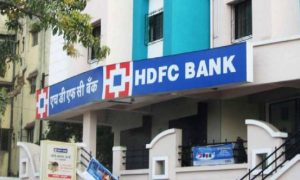In the 11 months of 2024, Mumbai recorded 127,987 property registrations, marking a 12 per cent year-on-year increase.
The Mumbai city, under the jurisdiction of the Brihanmumbai Municipal Corporation (BMC), is projected to record over 9,419 property registrations in November 2024, generating more than Rs 826 crores in revenue for the state exchequer, according to a report by real estate consultancy firm Knight Frank.
“Compared to the same period last year, property registrations noted a modest decline of 3 per cent, while stamp duty collections increased by 16 per cent year-on-year, driven by a notable rise in high-value transactions,” Knight Frank said in the report.
On a sequential basis (month-on-month), property registrations saw a decline of 27 per cent, with revenue collections decreasing by 31 per cent, it added.
“This trend is attributed primarily to the seasonal surge observed in October, fuelled by the festive activities of Diwali and Navratri. The reduced activity in November may also reflect a market pause following October’s robust performance further catalysed by-elections in the state, which further impacted activities. Residential accounted for 80 per cent of total registrations in November,” Knight Frank said.
Read More: Haryana RERA warns real estate promoters to submit annual reports within 30 days or pay ₹5 lakh fine
Property Registration in 2024
In the 11 months of 2024, Mumbai recorded 1,27,987 property registrations, marking a 12 per cent year-on-year increase. Revenue collections inched close to the 11,000 cr milestone in November 2024, — the fastest growth in a decade — with a 10 per cent YoY rise.
“This sustained activity in property transactions reflects increasing economic prosperity and continued sentiment toward homeownership among Mumbai’s residents,” Knight Frank said in the report.
Shishir Baijal, chairman and managing director of Knight Frank India, said, “Mumbai’s property market continues to demonstrate remarkable resilience and adaptability to evolving buyer preferences. While registrations saw a marginal 3 per cent year-on-year decline in November 2024, this was offset by a robust 16 per cent growth in revenue, driven by an uptick in high-value transactions.”
The sequential dip following the festive-driven surge in October reflects a natural phase of market consolidation. Significantly, the increasing demand for premium properties and larger living spaces underscores a decisive shift towards quality, value, and long-term investment in Mumbai’s ever-dynamic real estate landscape, he added.
Read More: Karnataka RERA asks Ozone Group to repay homebuyer’s home loan, clears all liabilities on buyer
Higher-Value Properties Worth Rs 2 Crore and Above
Demand for higher-valued properties saw a significant increase, with properties priced at Rs 2 crore and above making up 23 per cent of registrations in November 2024, up from 17 per cent the previous year.
Transactions in this segment totalled to 2,147 properties. Meanwhile, the share of properties valued at less than Rs 50 lakh dropped sharply, falling from 28 per cent in November 2023 to 20 per cent in November 2024.
Properties Up To 1,000 Sqft Continue To Lead in Registrations
In November 2024, apartments sized between 500 and 1,000 sq ft remained the most popular, representing 48 per cent of all registrations. The share of larger apartments measuring 1,000 to 2,000 sq ft rose from 8 per cent to 14 per cent, and those over 2,000 sq ft grew from 2 per cent to 5 per cent, reflecting a steady shift in buyer preference towards more spacious living spaces. Smaller units up to 500 sq ft saw a sharp decrease, from 47 per cent to 33 per cent, according to Knight Frank.
Read More: Jewar Airport Land Allotment: 34,000 Apply For 451 Plots, YEIDA Rakes In Rs 1,493 Crore
Western Suburb and Central Suburb
These regions account for 86 per cent of the total market share. In November 2024, Central Suburbs saw a growth in market share, rising from 29 per cent to 31 per cent, and South Mumbai increased from 7 per cent to 9 per cent.
Both these locations have seen a rise in supply in recent time which has piqued end-user interest. Central Mumbai maintained a stable 7 per cent share, while the Western Suburbs experienced a slight decrease from 57 per cent to 53 per cent.





































